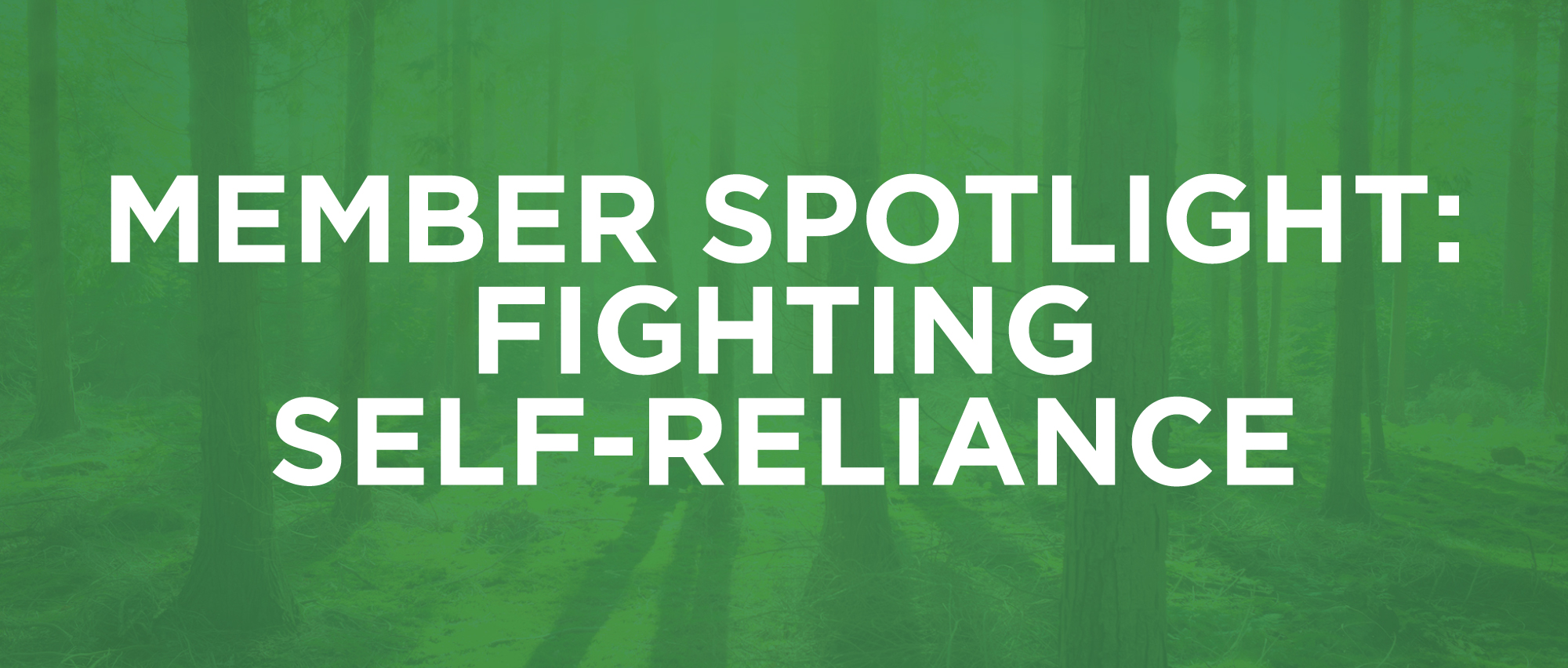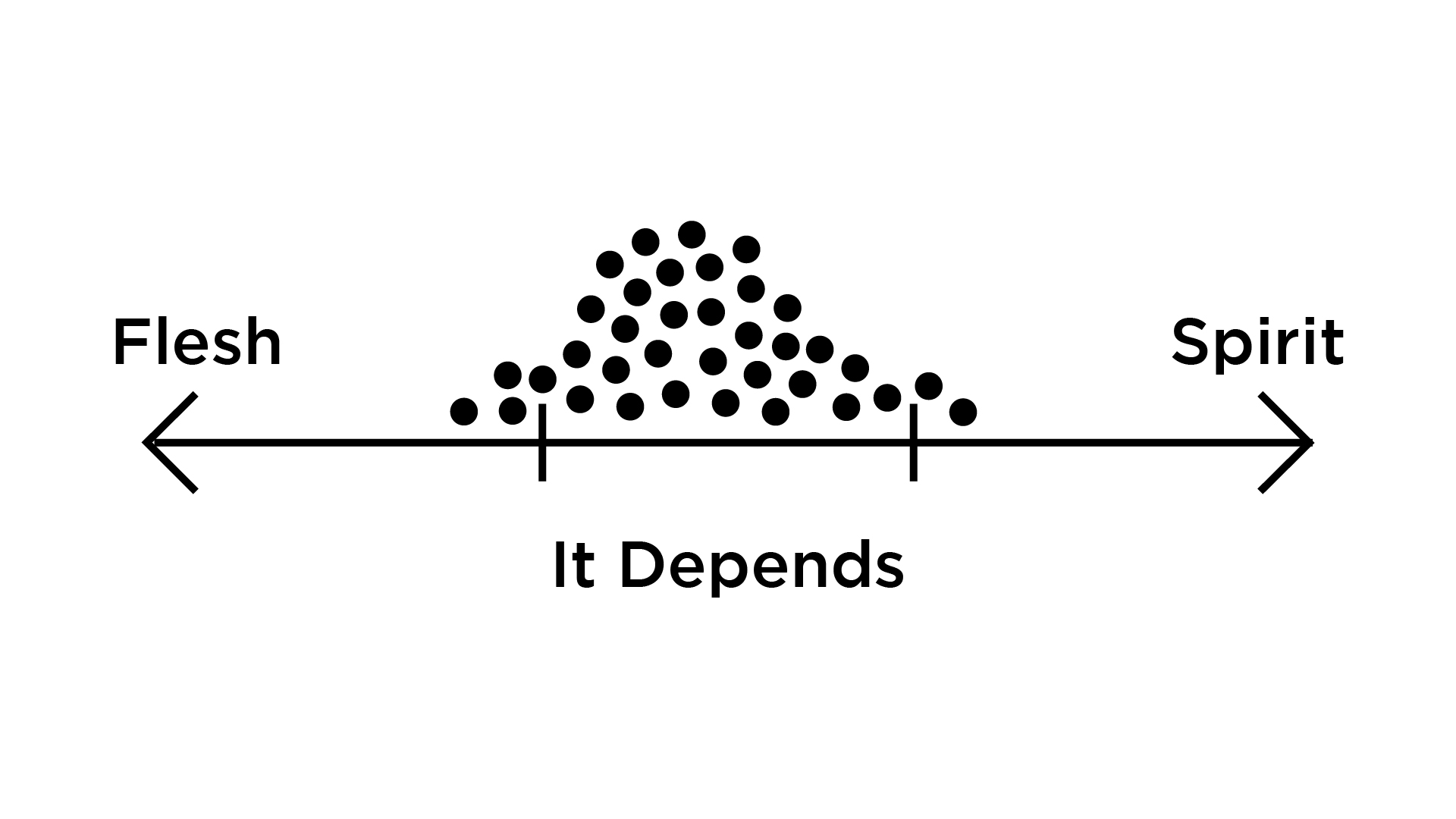This week in our Personal Liturgy series, we began exploring our fourth enemy to our spiritual health: cynicism. This enemy is one of the hardest to point out because we sometimes conflate being cynical with being grown-up, rational Americans and because we don’t have a great working definition or understanding of what cynicism is on a day-to-day basis.
Cynicism - a posture of skepticism that leads you to doubt God’s presence and activity in your life.
3 Symptoms of Cynicism:
- Doubt/Distrust: When we’ve been burned or hurt, we don’t want to feel that again, so we self-protect. We start to believe everything and everyone has an angle and begin questioning people’s motives. We start to doubt God and distrust Him. Our faith gets doubted constantly while our doubts and cynicism go unchecked.
- Distance: We grow distant from God and people, specifically people who don’t join us in cynicism. If intimacy requires trust, then cynicism is distrust. It holds people at arm’s length and doesn’t expect God to show up in our lives.
- Disenchantment: Hope, belief, trust, love, intimacy, and life with a supernatural God are all very enchanting things. They are things that brighten our eyes and fill our spirit and fill us with wonder. Cynicism looks at these and rolls its eyes at it because cynicism makes us disenchanted.
On the evening of that day, the first day of the week, the doors being locked where the disciples were for fear of the Jews, Jesus came and stood among them and said to them, “Peace be with you.” When he had said this, he showed them his hands and his side. Then the disciples were glad when they saw the Lord. Jesus said to them again, “Peace be with you. As the Father has sent me, even so I am sending you.” And when he had said this, he breathed on them and said to them, “Receive the Holy Spirit.” Now Thomas, one of the twelve, called the Twin, was not with them when Jesus came. So the other disciples told him, “We have seen the Lord.” But he said to them, “Unless I see in his hands the mark of the nails, and place my finger into the mark of the nails, and place my hand into his side, I will never believe.”
- John 20:19-22, 24-25
When Jesus died, so did Thomas’ spiritual hopes and Thomas’ reputation. To say Thomas was devastated is not enough. He felt distraught and abandoned. At best, he’ll be mocked for following Jesus, the fraud. At worst, he’ll be tracked down and killed.
That’s the weight of indescribable disappointment and hurt packed in the words: “I will never believe.”
The Doubting Thomas in All of Us
Sometimes, like Thomas, disappointment and wounds are at the heart of our cynicism. Cynicism becomes our defense mechanism. Cynicism grows in the wounds caused by life not going how we hoped.
But cynicism is more than just disappointment and hurt. The truth is, there’s a bit of a doubting Thomas in all of us.
- For some of us, cynicism starts every morning when we don’t see the need to carve out time with Jesus and then stumble into our day godlessly, without prayer or any acknowledgment of God’s presence and power in our lives.
- For others, cynicism shows in us when we attribute something amazing to circumstance or nature, rather than to prayer and God’s hand.
- Cynicism shows up in our spiritual growth when we don’t see the growth we desire, believe that we will never change, and so we stop putting forth the effort.
- It can show up in our relationships with others. When we see sin or weakness in someone and God’s Spirit prompts us to encourage, correct, or rebuke, cynicism creeps in and tells us that conversation will go badly or that it won’t be worth it.
- Cynicism can creep into the mission. We can get really excited about the mission and want to invite people to church or LifeGroup, but when cynicism speaks up, we deflate and convince ourselves they won’t come, so it won’t be worth asking. Cynicism neuters courage and obedience.
- Ultimately, cynicism affects our view of God. We start to see God more as a distant watchmaker in the sky, than as a Father who cares and is involved in the details of our life.
It’s all cynicism. We don’t actually trust God is exactly who He says He is and we don’t actually believe He’s going to do what He says He’s going to do.
Eight days later, his disciples were inside again, and Thomas was with them. Although the doors were locked, Jesus came and stood among them and said, “Peace be with you.” Then he said to Thomas, “Put your finger here, and see my hands; and put out your hand, and place it in my side. Do not disbelieve, but believe.” Thomas answered him, “My Lord and my God!” Jesus said to him, “Have you believed because you have seen me? Blessed are those who have not seen and yet have believed.” Now Jesus did many other signs in the presence of the disciples, which are not written in this book; but these are written so that you may believe that Jesus is the Christ, the Son of God, and that by believing you may have life in his name.
- John 20:26-31
As Thomas touches Jesus’ wounds, Thomas’ wounds are healed. His cynicism and distrust are shattered. The prophecy in Isaiah 53, that by Jesus’ wounds we would be healed, comes true for Thomas right here.
In the middle of this incredible, powerful moment with Thomas, Jesus stops, and thinks about us. He stops and thinks about all of us who would never get to see Him in the resurrected flesh, and He says, “Blessed are those who don’t see but still believe.”
Jesus extends to us the same offer He extended to Thomas: to look at His wounds and believe. He invites us to believe that Jesus, the Son of God died in our place. He calls us to believe He rose from the grave. He calls us to believe that in the midst of our frustration and doubt, God sees us, hears our every word muttered in cynical angst, and loves us anyway.
Reading the Bible brings us back into the enchanted, supernatural world that God created. It was written so we could encounter the living God, the Maker of heavens and the earth, and the God who sustains our every breath. Time and time again, we get to see God showing up over and over again, bringing life and hope to all kinds of different people and sinners. We get to see the miraculous work of Jesus dying on the cross for us and saving us!
Here’s what this means for us:
- God pursues the disenchanted and the cynical. The Bible is proof - the spread of this book around the globe is proof! God is coming after us. We have God’s supernatural revelation of Himself to us right here.
- We fight cynicism by being in God’s Word. If the purpose of Scripture is for us to believe in Jesus and we find ourselves wrestling with cynicism, we should be spending more time in His Word.
This is God’s plan to crush your disbelief and cynicism. The Bible is God’s plan to re-enchant you to the unthinkable grace found in reality. God’s Word never returns void.
Personal Liturgy Challenge
Our challenge for this week is to meditate on Scripture for at least 15 minutes per day. Passages and questions will be provided for us to pray through as we meditate on God’s Word.
























